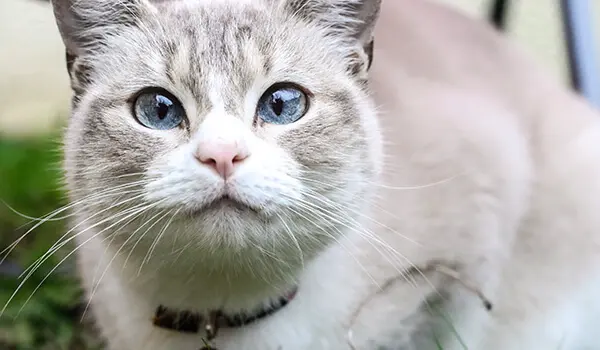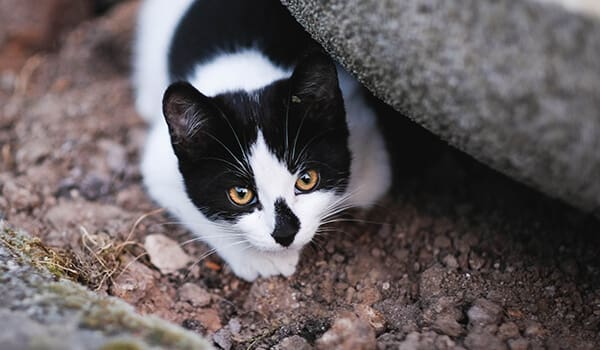Did you know that cats can get a virus called FIV that has similarities to HIV in humans? FIV (feline immunodeficiency virus) compromises their immune systems for life. There is no treatment to cure it. Here’s what you need to know:
 FIV is Transmitted Primarily Through Bites
FIV is Transmitted Primarily Through BitesCats spread FIV to each other primarily through bite wounds. Any cat with access to other cats, especially those who spend time outdoors, can get FIV. By extension, unneutered males are most likely to get FIV just because they commonly roam around and fight other cats. So let’s add this to the list of reasons why spaying and neutering doesn’t just prevent unwanted litters—it saves lives.
In more rare occasions, mother cats can pass the virus to their kittens during birth or nursing. Sexual contact among cats doesn’t appear to be an efficient way of transmitting the virus, and FIV is not transmitted through casual contact such as grooming, sharing bowls, or sneezing. Humans cannot get FIV from cats.
By impacting the immune system for the rest of a cat’s life, the cat will be more susceptible to infections caused by bacteria, viruses, fungi, and protozoa. Though symptoms may not be obvious for months or years, FIV-infected kitties are more likely to have anemia, chronic inflammation or infections of the mouth and gums, bladder, skin, eyes, etc. Less often, cats will show behavioral or neurological changes. Patients usually have gradual weight loss that can become severe later in life. They are also more likely to develop certain kinds of cancers.
Despite all this, many cats who are very well cared-for can live long, relatively healthy and happy lives. This is where preventive care is key!
 FIV tests look for antibodies that the body developed to the virus. It is possible to get a false-positive on tests, so any positive result will be followed by a second test that is sent to a laboratory for confirmation. Cats who have previously been vaccinated against FIV may test positive as a result of the vaccine, so it’s important to be thorough in providing your cat’s medical records to your veterinarian.
FIV tests look for antibodies that the body developed to the virus. It is possible to get a false-positive on tests, so any positive result will be followed by a second test that is sent to a laboratory for confirmation. Cats who have previously been vaccinated against FIV may test positive as a result of the vaccine, so it’s important to be thorough in providing your cat’s medical records to your veterinarian.
A negative result is typically considered accurate, but it can take 8-12 weeks after a bite for the body to produce enough antibodies to be measurable for diagnostics. For this reason, if your cat has been bitten by another cat, please note when it happened when you speak to your vet.
Prevention is super important, not just for your own cat, but also to prevent the virus from spreading to other kitties. Spay/neuter and keep your cats indoors to prevent the situations where FIV and other illnesses are transmitted. FIV vaccines may be recommended by your vet on a case-by-case basis.